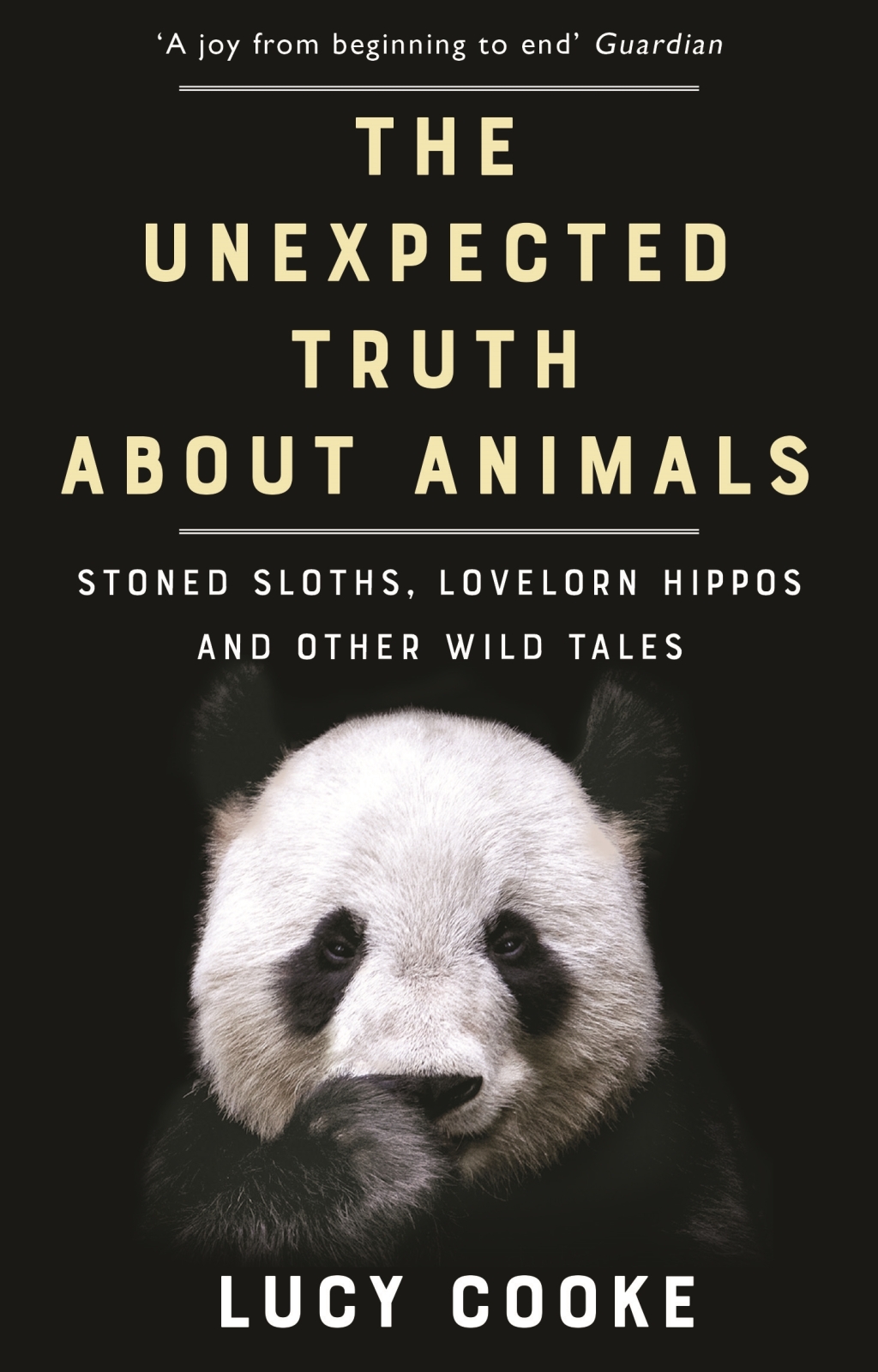The Unexpected Truth About Animals: Stoned Sloths, Lovelorn Hippos and Other Wild Tales
By Lucy Cooke (2018)
I was addicted to this book when it first came out. I remember reading it on the bus and quickly flicking past the honest photo of hyenas, nervous the child behind me was looking over my shoulder. As for those of you who don’t know, female hyenas have pseudo-penises. The alpha-female also rules their matriarchal clans. Female spotted hyenas are fierce, clever and really rather gorgeous!
The book blew my mind. I quickly realised that these animals’ lives didn’t fit into the tidy boxes that my school education had instilled in me. More so, I wondered why all the educational documentaries I had watched (and worked on) had never told these stories. Cooke did used to work in TV after all. I quickly became aware that what I thought to be “nature” was a very well crafted PG-13 rated story. A bit like the Disney-fied version of reality. The story of pristine and human-less wildernesses seemed separate from and different to human me. But everything I read broke down the protective barriers around what I thought nature was, with a sledge hammer. As in the book, nature seemed to end up being everything I thought it definitely was not.
Yes, the book is designed to be entertaining and Cooke crafts her chapters in ways that trigger shock and make you laugh. But it really was a personally revealing read, as I began to question my reactions – why was I so shocked? Why did these stories differ so much from what I expected? It made me curious about how else my understanding of nature might be limited. And how I might the well crafted story I had previously believed to be true affect how I value the natural world. And why on earth did I believe this more boring version of reality in the first place? Who crafted the story of what nature was before it was sewn into my school’s GCSE textbooks?
Now that I knew female sloths deposited little spiral poos underneath their tree to leave a scent trail for potential males, I went off and did a lot of my own research. I spent hours at the Natural History Museum quizzing poor PhD students on the bullying eusocial antics of the female queen naked mole rats. I went to London Zoo’s valentines day special to end up watching a VR headset demo of the VFX inside of a duck’s oviducts. Falling a little off track.
The book started my journey down a long path where I began “queering” nature. I questioned what stories I was told by society, what stereotypes about gender and sexuality these stories projected and how they influenced my relationship with the “natural world”. I wanted to know what boxes and binaries I believed in and whether they had any effect of how I was physically able to experience nature. Apart from the fact that I started quoting this book at everyone I met, definitely not to the child on the bus, learning these new facts made nature feel more “human”, or maybe the other way around – it made me feel less human and part of something wider and much more complicated.
This book encourages the reader to question their beliefs and expectations. It challenges us (humans) to explore our perceived differences and separation from nature. It also encouraged me to change one word in this sentence: human vs nature TO human with nature. How does the second one feel to you?
So the questions I leave my imaginary book club with are:
- How did you react when reading the book? And did your reactions challenge what you think of as nature?
- How do you now define nature? And where do humans fit in?
- Does it matter if the stories society tell us about the natural world hide certain facts?
- And, how much do you love sloths?
Finally, to link in with my PhD research, I leave you with one final question: what impact do these cultural stories about the natural world have on how we engage with climate, environmental and social justice?
Find the book here: https://www.penguin.co.uk/books/433913/the-unexpected-truth-about-animals-by-lucy-cooke/9781784161903
Or in any good library!
Enjoy!
Writer note:
Book cover: Cooke, L. (2018). The Unexpected Truth about Animals: Stoned Sloths, Lovelorn Hippos and Other Wild Tales. United Kingdom: Black Swan.
